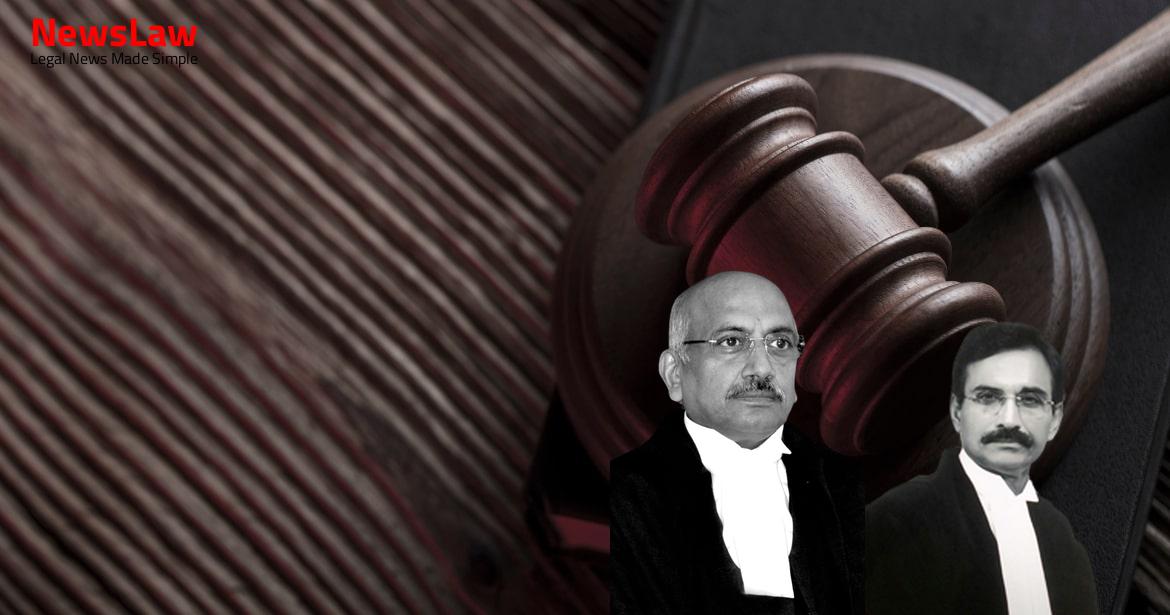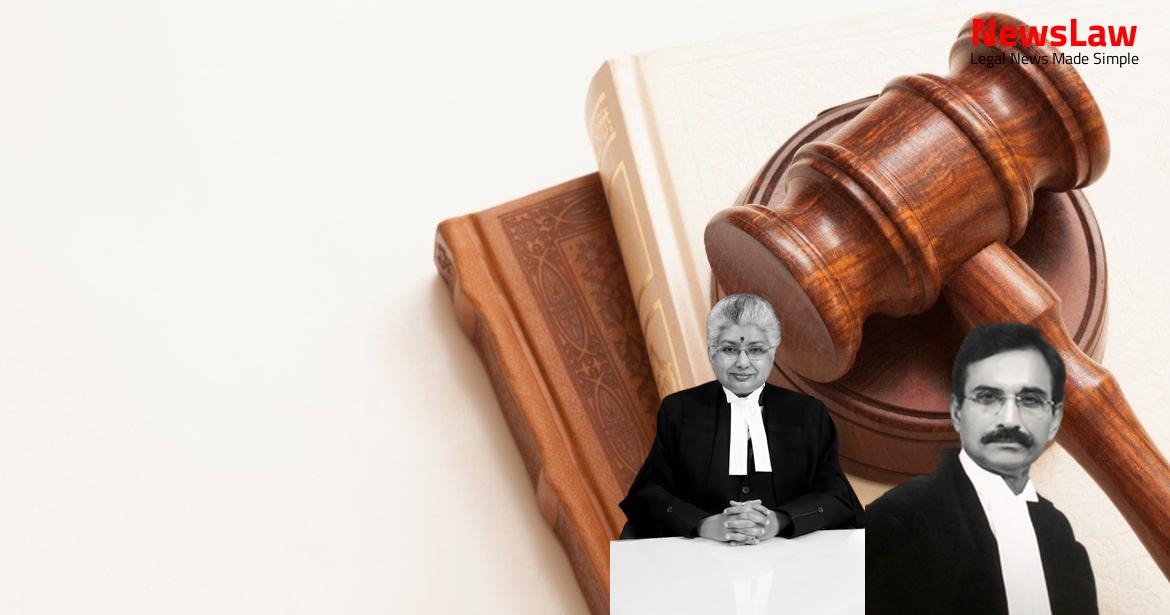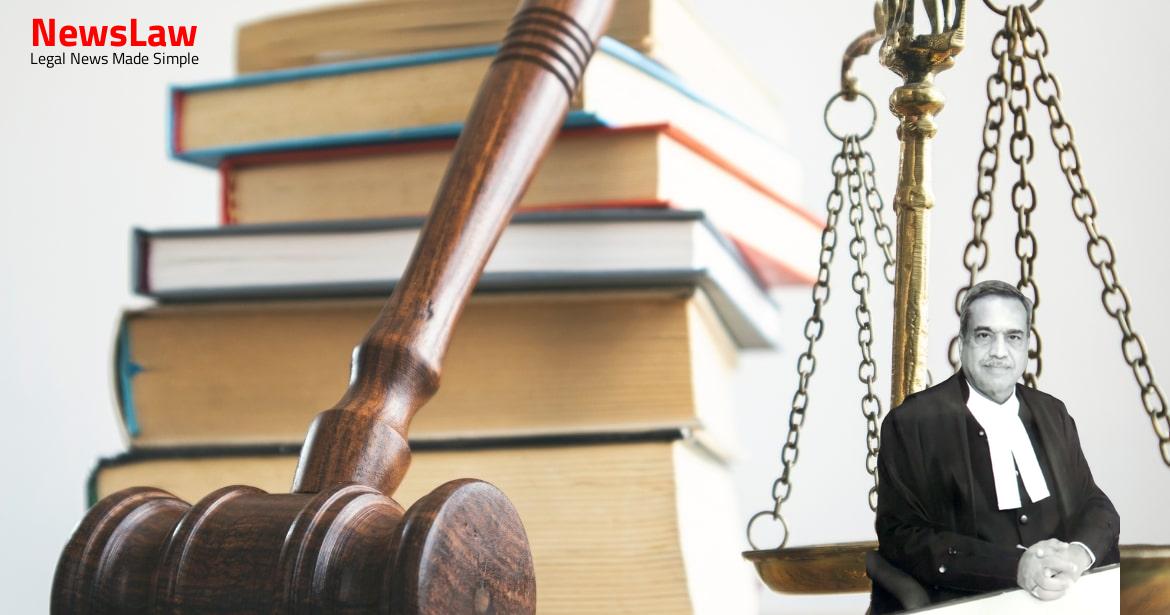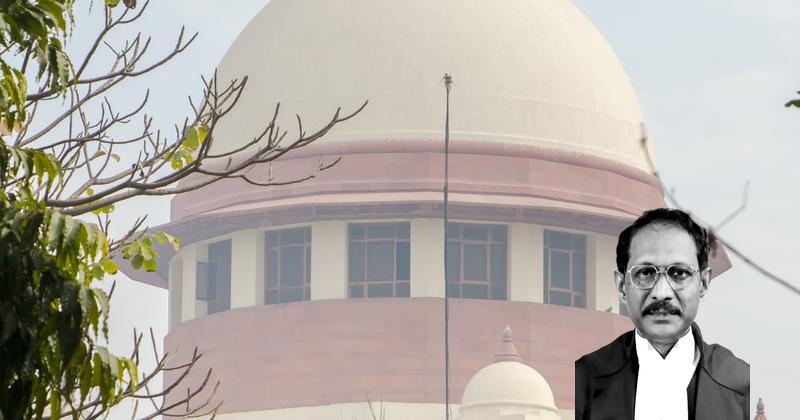A landmark decision by the Supreme Court of India has been made in a case involving dowry harassment and suicide. The ruling addresses the tragic circumstances leading to the death of Maheshwari. The judgement holds implications for the legal framework surrounding such sensitive issues. Stay tuned for more insights on this important verdict.
Facts
- FIR filed by father of deceased Maheshwari alleging harassment for dowry by husband and his family
- Allegations of illicit relationship by husband and physical assault by father-in-law
- Accused No.2, husband Suhag Kantibhai Parmar, has served sentence
- Sections under which FIR was registered: 498A, 306, 323, 149 of IPC and Sections 3, 7 of Dowry Prohibition Act
- Maheshwari committed suicide on 02.10.2013 by jumping from Jamalpur Bridge
- Accusations of physical and mental cruelty against brother-in-law, sister-in-law, and mother-in-law of Maheshwari
- Charges framed against all accused after completion of investigation
- Accused No.2, Suhag Kantibhai Parmar, was sentenced to rigorous imprisonment for five years and fined Rs. 2000 for the offence under Section 306 IPC.
- Accused No.2 was also convicted under Sections 498A and 114 IPC.
- The trial court found that the deceased committed suicide due to harassment from the accused for not meeting dowry demands.
- Accused No.2’s conviction and sentence were confirmed by the High Court.
- Accused Nos. 3, 4, and 5 were acquitted by the High Court, but the conviction of the Appellant (Accused No.1) for offences under Sections 498A, 114, and 323 IPC was upheld.
- The Appellant and Accused No.3 were sentenced to three years imprisonment for offences under Sections 498A and 114 IPC, and six months for the offence under Section 323 IPC.
- Accused No.4 and Accused No.5 were sentenced to one year rigorous imprisonment for the offence under Section 498A.
- Accused No.2 was further convicted under Section 306 IPC read with Sections 3 and 7 of the Dowry Prohibition Act.
Also Read: Case of Technical Equipment Officer Appointment Criteria Dispute
Arguments
- PW-1 and PW-4 mentioned that the Appellant had beaten the deceased twice
- The Appellant’s counsel argued that PW-1’s evidence should not be relied upon as the deceased was pregnant at the time of her death
- The Appellant’s counsel claimed that the extreme step taken by the deceased was due to unbearable torture from the Accused
- PW-4 did not mention any physical violence by the Appellant on her daughter
- The State’s counsel argued that the deceased’s suicide was a result of harassment by the Accused and his son
- The Appellant was responsible for driving the deceased to commit suicide.
- The evidence presented by PW1 is deemed sufficient to uphold the conviction of the Appellant.
Also Read: Supreme Court Judgement on Transfer of Mining Environmental Clearances
Analysis
- Accused No.2 accepted conviction and served sentence, while Accused Nos. 3 and 5 had their conviction set aside.
- The overt act attributed to the Appellant is physical assault on the deceased on two occasions.
- PW 4 did not mention the Appellant beating the deceased on two occasions.
- Allegation of the entire family harassing the deceased is present in the FIR.
- PW-1 testified in court about the Appellant assaulting the deceased on two occasions.
- PW1 learned about the Appellant beating his deceased daughter from PW4.
- The Appellant’s acquittal is based on the fact that the allegation of physical assault on the deceased is not proven.
- The Appellant stands on the same footing as Accused Nos. 3, 4, and 5 who have been acquitted.
- Reliance cannot be placed solely on the testimony of PW1 for the conviction under Sections 498A, 114, and 323 as there is no corroboration by PW4.
Also Read: House Breaking by Night: Verdict Reversal and Reinstatement of Military Personnel
Decision
- The Appellant is directed to be released immediately if not needed in any other case.
- The Appeal is allowed, and the Appellant is acquitted of charges under Sections 498A, 114, and 323 of the IPC.
Case Title: KANTILAL Vs. THE STATE OF GUJARAT
Case Number: Crl.A. No.-001519-001519 / 2019



